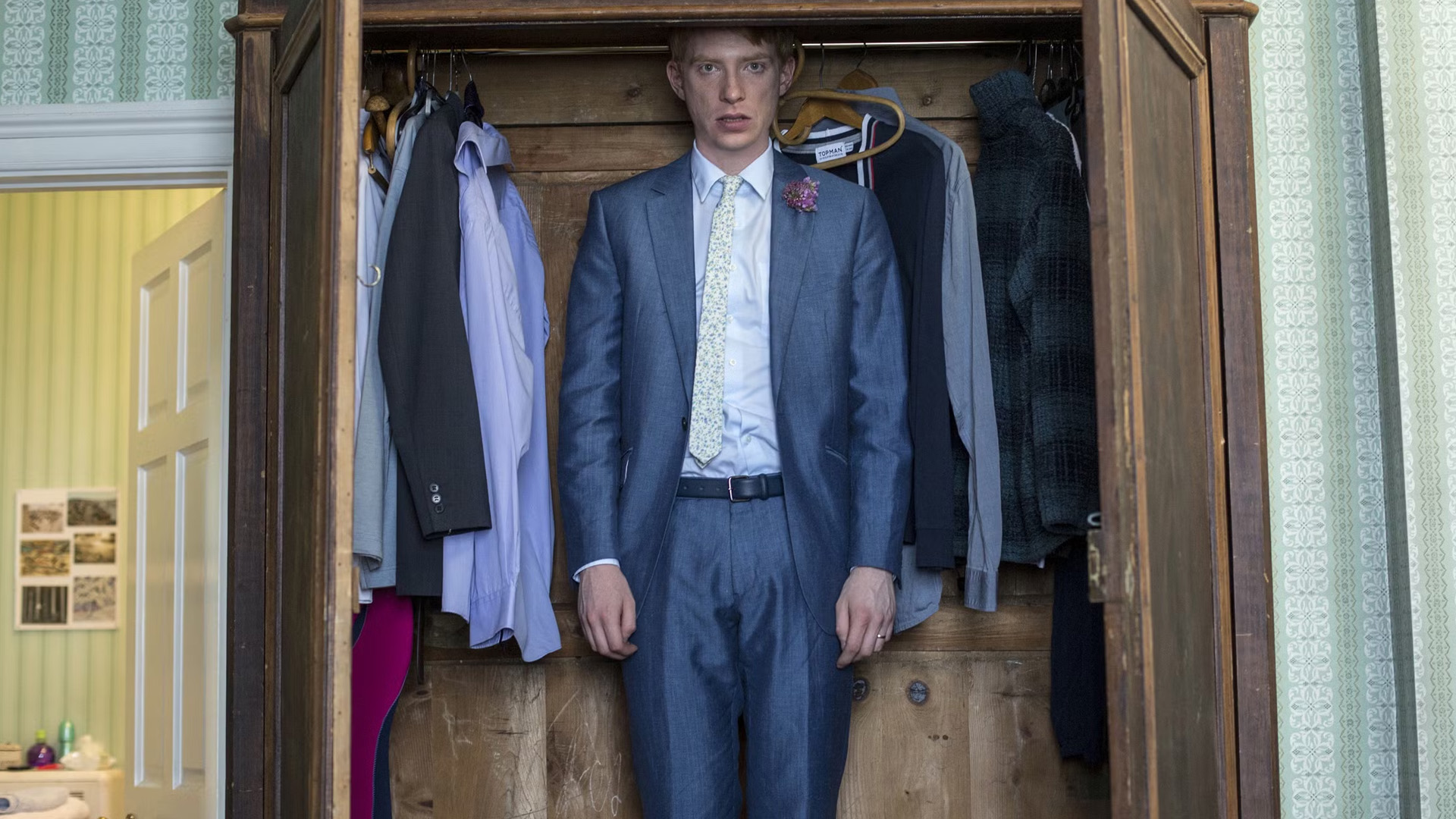We Live in Time and the tropes of the British romcom

To prime you for Florence Pugh and Andrew Garfield’s We Live in Time, Rory Doherty looks for the signs that you’re dealing with a British rom-com.
One delightful genre of online content is when someone stands about with a phone all day, stopping couples on the street and asking them to relay the story of how they met. You can discover some real heartfelt, surprising gems out in the bustle of the city, but no real London couple’s meet-cute story could dream of being as convoluted and dramatic as the plot of a British rom-com.
You’ll never hear of a movie star who fell for an emotionally unavailable bookshop clerk in an Instagram or TikTok video. A former Prime Minister finding love with a junior staff member would more likely make grave headlines than amuse and charm us. Two people becoming lovers after being jointly involved in a car accident makes more sense as a David Cronenberg premise than a jaunty dramedy—nevertheless, this is how Tobias (Andrew Garfield) and Almut (Florence Pugh) begin their life together in We Live in Time.
Our point is not that Notting Hill, Love Actually and We Live in Time have pretty far-fetched plots, but that zealous, quirky, and self-deprecating manner in which romantic comedies of the British variety cling to their genre tropes just ups the ceiling on how ludicrous the story can get. As the genre was born from bawdy comedy plays, which thrived off manners and miscommunication, farce and sentimentality is in the DNA. To prime you for We Live in Time, here are some signs that you’re in a British rom-com.

Improbable meet-cute
As previously touched on, Almut hits Tobias with her car, putting him in hospital where she sheepishly and guiltily waits on him. As far as inciting incidents go, it’s pretty gold, and it hits on another truism to the British rom-com–one character is usually having an absolutely awful time just before they discover love. Think of Gwyneth Paltrow who misses the train in Sliding Doors, Colin Firth’s blunt discovery of his wife’s infidelity in Love Actually, or the overall crisis Bridget Jones feels keenly in Bridget Jones’s Diary.
It will not feel like life-correcting love at first sight, but the strangeness of the meet cute will jolt your chaos of your life in a new direction that is too tempting to ignore. For the just-divorced Tobias, he takes Almut’s offer of a free dinner at her trendy new restaurant, and the sparks get a chance to fly.

Big problems, no small ones
We Live in Time recounts Tobias and Almut’s relationship and child-rearing in a non-linear order, so we see their courtship simultaneously with the family’s fight with Almut’s cancer diagnosis. Tobias’ job at Weetabix is less interesting than being a Michelin-star chef, but being boring seems to be its only offence. Welcome to the British rom-com, where everyone has lovely houses, secure jobs, and can only face the most severe and existential problems. This is a melodrama, after all, and you need something bold and brash to hook an audience—and eventually eke out tears.
Emilia Clarke crosses love with illness in both Me Before You (a parapalegic-assisted-suicide rom-com) and Last Christmas (a seasonal rom-com that sticks weirdly close to the lyrics of the George Michael song). You know where the film is going from the second that poor health is mentioned—our willingness to get ourselves hurt via fiction is exactly what makes the romcom’s appeal so fascinating.
But We Live in Time isn’t just a movie about a heavily telegraphed illness, it’s also about insane career ambitions for our exceptional protagonists—as Almut forgoes cancer treatment to make entering the Bocuse d’Or (the culinary Olympics) her final mark upon the world. Fame and fortune make tempting appearances in lots of British rom-coms—Wimbledon, Yesterday, and Notting Hill all display a cutesified version of celebrity dynamics, and ambition often gets in the way of the more grounded, deserving romance plot.

Doing something that jeopardises the relationship
Does Tobias know that Almut is training for an international culinary competition? No he does not. One of the biggest sources of conflict in a rom-com is one of our romantics doing something behind the other’s back—and the cringe-inducing tension is cranked up if it’s in a British rom-com. In Yesterday, the musical protagonist takes credit for all of The Beatles’ music; in About Time, our gangly hero uses time travel to manufacture the perfect relationship with a beautiful woman; in Man Up, an unhappily single woman takes the place of a divorcee’s blind date without telling him.
The build-up of tension is somehow more tolerable in Hollywood rom-coms, where the big, brash emotions feel at home—when the deception happens to cross and flustered Brits, the cringe feels far more real. We Live in Time takes advantage of this realness, pushing Tobias and Almut’s relationship into dangerous waters as they acknowledge how intimately hurt he is by her lies.
Public request to be accepted back
Everyone in romcoms is cartoonishly impulsive, often because they want to avoid drastic, vulnerable change. When Tobias and Almut first break up, he turns up to her flat—and does the classic “I’m sorry, I messed up, you’re amazing” routine in front of her close friends. It’s a welcome moment of catharsis in any rollercoaster romance, and it dates all the way back to Austen’s Pride & Prejudice—check out any of the canon of British TV and film adaptations to see it in live-action, and realise what a clichéd but vital connective glue it is for the feel-good genre.
Originally published by Flicks on Dec 24, 2024.






















